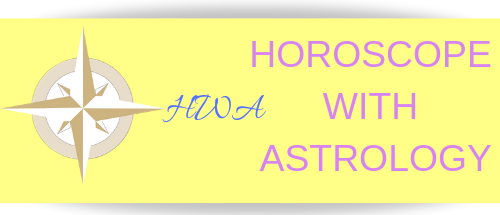People usually misunderstand between Astrology and Astronomy. People might don’t know they are the best couple before. Time flies. Astronomy develops-> Astronomy breaks up with Astrology-> move forward as independent discipline.
Review the difference between Astrology and Astronomy
The term is a compound of the Greek words astron (star) and logos (wisdom). Astrology is thus described as a system that perceives a deeper meaning in the movement of the celestial bodies which is related to humans and events on this planet.
Astro Wiki
A connection is made between planetary movements and events in a particular location and their subsequent unfolding at particular times. The horoscope serves as the basis for these calculations, and because a horoscope is always calculated for a specific location, astrology works with the geocentric model.
Astro Wiki
Astronomy is the science of celestial bodies or cosmic matter.
This understanding is based on observation of the cosmos and measurement of radiation which is then assessed according to the laws of physics and chemistry
Astrophysics, which attempts to gain a more accurate picture of cosmic events, has developed as a specialised
branch of astronomy.
If you want to learn more detail about the difference, click on this link.
Here is the definitions from Wikipedia:
Astrology is the study of the movements and relative positions of celestial objects as a means of divining information about human affairs and terrestrial events.[Astrology has been dated to at least the 2nd millennium BCE and has its roots in calendrical systems used to predict seasonal shifts and to interpret celestial cycles as signs of divine communications. Many cultures have attached importance to astronomical events, and some—such as the Hindus, Chinese, and the Maya—developed elaborate systems for predicting terrestrial events from celestial observations
Astronomy (from Greek: ἀστρονομία) is a natural science that studies celestial objects and phenomena. It applies mathematics, physics, and chemistry in an effort to explain the origin of those objects and phenomena and their evolution. Objects of interest include planets, moons, stars, nebulae, galaxies, and comets; the phenomena also includes supernova explosions, gamma ray bursts, quasars, blazars, pulsars, and cosmic microwave background radiation. More generally, all phenomena that originate outside Earth’s atmosphere are within the purview of astronomy. A related but distinct subject is physical cosmology, which is the study of the Universe as a whole
A subtype of Astronomy Science is a Cosmology
Cosmology is the study of the cosmos, and in its broadest sense covers a variety of very different approaches: scientific, religious and philosophical. All cosmologies have in common an attempt to understand the implicit order within the whole of being.
Physical cosmology (often simply described as ‘cosmology’) is the scientific study of the universe, from the beginning of its physical existence. It includes speculative concepts such as a multiverse when these are being discussed. In physical cosmology, the term cosmos is often used in a technical way, referring to a particular spacetime continuum within a (postulated) multiverse. Our particular cosmos, the observable universe, is generally capitalized as the Cosmos.
Therefore, it’s pure about the Science opposes Astrology. Since Astrology lacks merit and scientific evidence, Modern Astronomy completely rejects Astrology. All scientists place Astrology into a Pseudoscience which they admit there are something there, but they can’t prove under science.
More detail about Science opposes Astrology
Starting from the ancient Mesopotamia time, Astrology and Astronomy is the only. They don’t separate.
They still hold hands together until the Age of Reason. It has another name: Enlightenment when it begins from 1685 to 1815.
As the theme for the period, everyone questions why. It signifies a massive revolution in Europe and a lot of invention in majors: math, physic, medicine, chemistry, humanity, etc.
With many discoveries about cosmos and universal bodies during the Enlightenment, scientists believe that Astronomy can stand independent without Astrology. With Science, Astronomy can “giving an adequate explanation of the world and ultimately the universe itself “-> there is no reasons for Astronomy to stay with Astrology anymore.
A few Astronomical discoveries in the Enlightenment:
- Nicolaus Copernicus engraves the foundation about the Sun is the center of the Universe, not the Earth. (this model is pretty new and changes the old model of thinking)
- Following idea, Galileo Galilei believes our Earth is not flat like we usually believe before. He also creates his own telescope-> with the tool, he discovers many stars and planets. He confirms that our Earth orbits to the Sun. Other planets do the same with our Earth.
- Linked from Galilei discoveries, Newton discovers about the Law of Gravity and other cosmos physics.
- Till Johannes Kepler, he calculates the sharp of the Earth orbit around the Sun is an eclipse sharp. Kepler announces his astrological law of planetary motion. (Law of Area, Law of Orbit, Law of Periods)

‘The soul of the newly born baby is marked for life by the pattern of the stars at the moment it comes into the world, unconsciously remembers it, and remains sensitive to the return of configurations of a similar kind.”
Kepler, Harmonics Mundi, chapter 7
- In 1705, Halley correctly linked historical descriptions of particularly bright comets to the reappearance of just one, which would later be named Halley’s Comet, based on his computation of the orbits of comets.
- James Bradley is so close to discover the accuracy of light’s speed
In Medicine field, it also has many inventions and discoveries that not involve to Astrology.
- John Hunter encourages his students to experience. Observe-> make hypothese-> collect evidences-> make experiments on human body-> observe how it reacts-> notice-> apply back for healing.
- Male doctors are attending women in childbirth.
- ” René Laënnec, a native of Brittany, who practice medicine in Paris, invents a simple stethoscope, or cylindre, as it was originally called. ”
- “The son of an innkeeper, he said to have conceived the idea of tapping with the fingers when he recalled that he had used this method to gauge the level of the fluid contents of his father’s casks. “
- Vaccines
- Simple Stethoscope
- Hospitals are formed with multipurpose.
In 1975, 186 scientists – among them 18 Nobel Prize winners – placed an advertisement in the American journal The Humanist condemning astrology. The publication sparked interest among journalists, and BBC reporters wanted to interview some of the Nobel Prize winners concerning their own personal views regarding astrology. However, they refused to be interviewed, the reason being that they had not looked into the matter in any detail.



